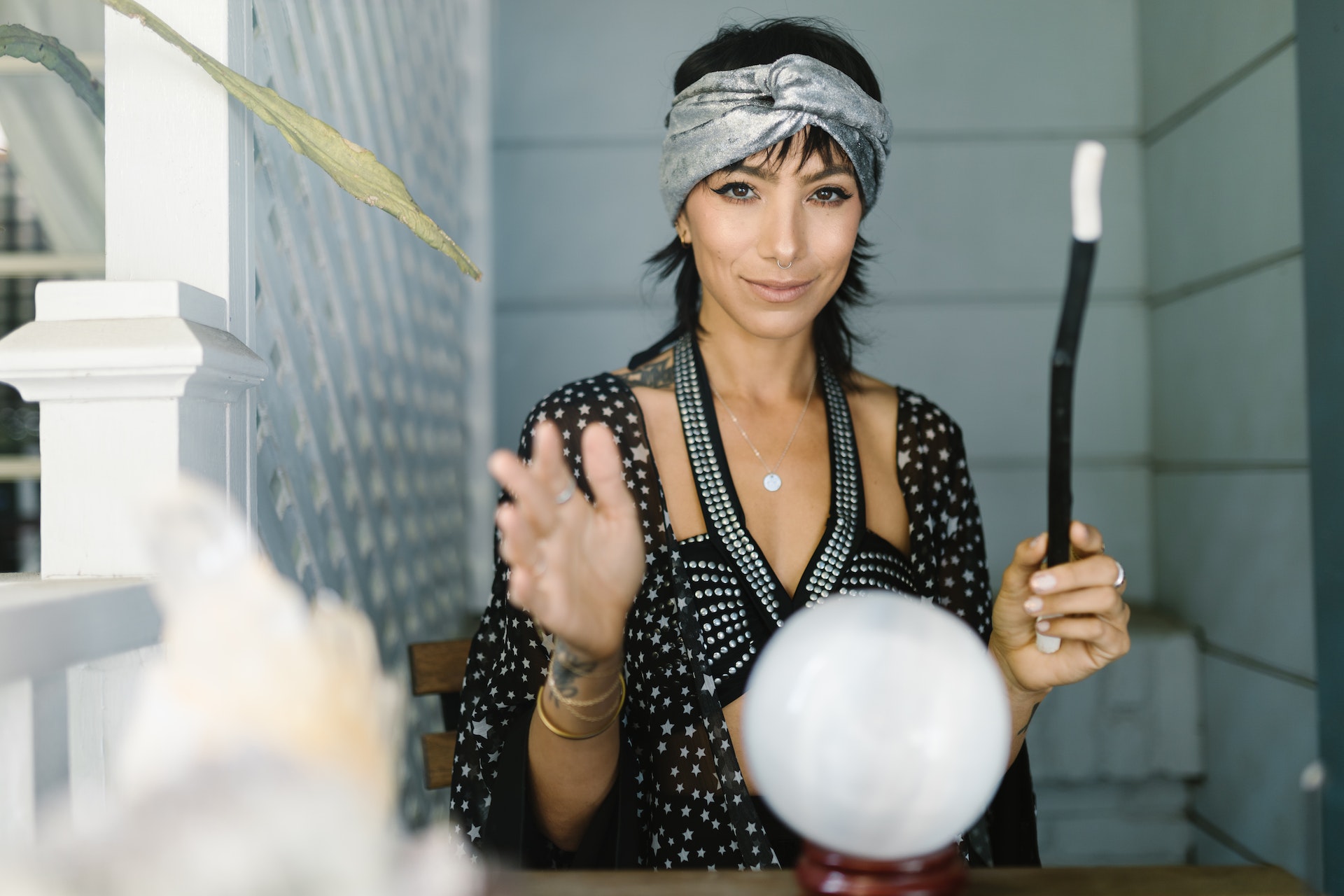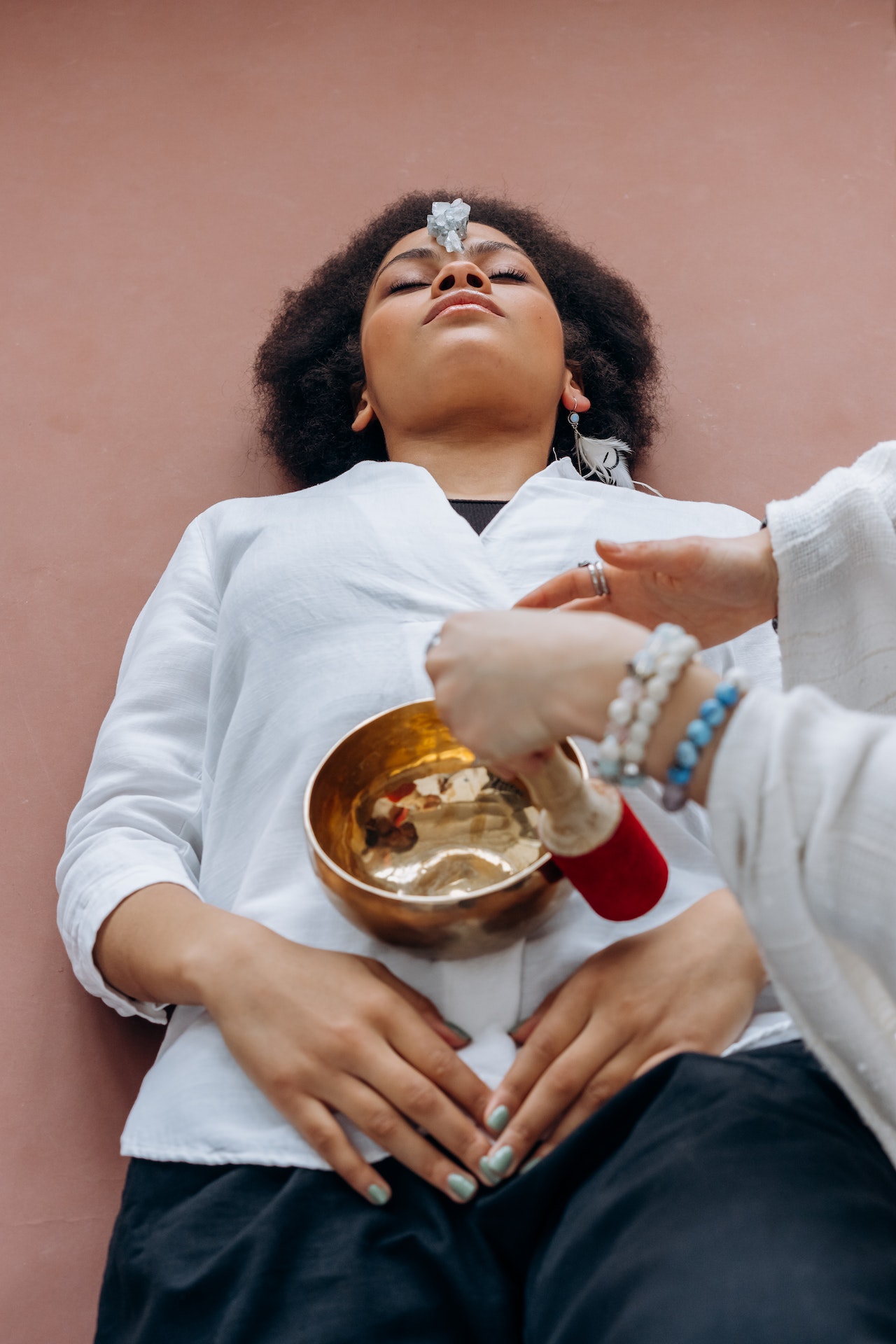Don't Take Energy Healing Seriously - Why Energy Healing Doesn't Work And How To Approach Safely
Energy healing is a holistic practice that uses the subtle energy systems of the body to get rid of blocks. By breaking through these energetic blocks, the body's natural ability to heal itself is sparked. This if patients take energy healing seriously, it can endanger their lives. So as initial tip don't take energy healing seriously.
Author:Suleman ShahReviewer:Han JuJan 24, 2023100K Shares1.3M Views

Energy healing is a holistic practice that uses the subtle energy systems of the body to get rid of blocks. By breaking through these energetic blocks, the body's natural ability to heal itself is sparked. This if patients take energy healing seriously, it can endanger their lives. So as initial tip don't take energy healing seriously.
There Is Medical Proof That People Use Energy Healing
Evidence shows that some people with non-communicable diseases use energy healing as part of their self-care plan, but not much is known about how well it works.
What Is Reiki?
Reiki is a form of energy healing in which a Reiki master, who has been trained in this healing art, uses gentle hand movements to guide the flow of healthy energy (called "lifeforce energy" in Reiki) through a client's body to reduce stress and promote healing.
Reiki can be talked about with a heavy hand or a light touch. Its actions, which are based on an energy that can't be measured by science, give skeptics who want to beat up on absurdity a punching bag they can't miss.
A study about how carbonated drinks affect chakras? Really? A Reiki master who does distance healing with stuffed animals? But I will tone down the sarcasm and focus on asking questions to see if the claims and historyof Reiki and its spiritual offspring, like Therapeutic Touch, pass the sniff test.
Brains That Are Hungry To Heal See Things
Reiki is a Japanese technique that its followers say can help people get better. It says that we have some kind of life force energy that, when it gets low, makes us sick. A Reiki master believes that when they place their hands above and on a client's body, they are channeling the energy of their god to heal the client.
Even though there have been many versions of Reiki in the past, the most common one is called Usui Shiki Ryoho, which is named after Mikao Usui, the person who started it. Usui was a Japanese man who was born in 1865. He was part of a group that wanted to develop psychic powers.
He climbed a mountain, went without food for 21 days, and then had a vision. If this story had happened just a few years ago, I wonder if academic healthcenters would have taken Reiki seriously.
The history of therapeutic touch, which is basically Reiki with a nursing cap on, is also based on a story. The story goes that a nurse named Dolores Krieger was saddened in 1971 when she saw a young patient with a gallbladder problem die. So she decided to try something she had been learning for a few years.
Two psychic healers, Dora Kunz and Oskar Estebany, had taught her how to lay hands on someone to heal them. Krieger was happy with the results, so she began teaching other nurses how to use this method.
The International Association of Reiki Professionals (IARP) website says that Reiki doesn't heal anything. It does, however, help "get to the root cause of a condition" and make the best environment for the body to heal.
Doesn't that sound like getting better? "It's true," the text continues, "that removing the source of a problem can definitely make symptoms and physical problems better, but in a different way than curing does." Does this "pretzel logic" make sense, or does it sound like someone doesn't want to get sued for practicing medicine without a license?
There have been a lot of very theoretical ideas about how waving your hands could cure "help the body heal itself," but none of these ideas make scientific sense. Some people think that trauma is stored in our cells and that therapeutic touch can get cells to talk to each other again.
Otherssay that when our blood flows, the iron in it creates an electromagnetic field, or aura, which can be changed. Lastly, traditionalists of Reiki just say that they can channel the divine energy of their god.
Reiki masters have so much power at their disposal that it's a wonder that they usually advertise that they can help you feel less stressed and happier. You can visit some responsible reiki masterthat will help you to relieve stress (not to cure any fatal or weak disease) in ReikiConnection.
Can Reiki Make Symptoms Worse?
People's symptoms can sometimes worsen or temporarily worsen during or after a Reiki session. This could be as simple as a brief feeling of pain at the site of an old wound or scar from surgery. This kind of thing goes away quickly and may be part of the body's healing process.
People with long-term conditions who choose to get multiple (and maybe longer than usual) Reiki sessions in a short amount of time may experience a temporary worsening of their symptoms.
In this case, the person first feels better, which could be a general improvement in health or relief from specific symptoms. After a short time, the person either feels very tired or the symptoms come back.
In the past, this was seen as a good sign that the body's healing mechanisms had been activated and that the body was in the process of healing itself.
A key part of this process is that the person doesn't worry when their symptoms come back. Instead, they know that this is just their body doing what it needs to do.
Reiki Vs. Meditation
Reiki is a technique that is passed from person to person, but there are many different ways to meditate. You can learn to meditate at places like the Chopra Center, but the best way to meditate is in whatever way works best for you.
Don't Take Energy Healing Seriously Please
Should we even spend money and time studying something that seems so unlikely? What if I fast at the top of a mountain and have a hallucination that I can massage your organs with my mind, and I get a bunch of happy campers who think my mind healing helped their colons feel better? Should the government, which doesn't have a lot of money, use some of it to study my claim?
People Also Ask
What Are Energy Healing Techniques?
Even though there are many different ways to heal with energy, they all have the same goal: to fix imbalances and blockages in the natural flow of energy in the body. Reiki, sound therapy, and emotional freedom techniques are three ways to heal with energy that are becoming more and more popular.
Is Reiki Actually Effective?
The International Association of Reiki Professionals (IARP) website says that Reiki doesn't heal anything. It does, however, help "get to the root cause of a condition" and make the best environment for the body to heal. Doesn't that sound like getting better?
What Should I Feel During Reiki?
You might feel heat, tingling, or pulsing where the Reiki practitioner has put their hands.
Conclusion
The risk, though, is that its followers aren't always happy with just making you feel better. Who could be mad at them? If you thought you could use divine energy to make yourself feel better, would you stop there?
On its website, the IARP talks about a Japanese woman who was "very sick" and "needed surgery" in 1935. She went with her gut, didn't get the surgery, and Reiki is said to have healed her.
In the newsletter of the Canadian Reiki Association, it is said that Reiki symbols can be used to treat ear or sinus infections.
It is also said that excessive fatigue, sudden strong desires for sensual gratification, and hearing voices could be signs of a "psychic attack." These statements are dangerous and false, and they can lead people away from real treatments.

Suleman Shah
Author
Suleman Shah is a researcher and freelance writer. As a researcher, he has worked with MNS University of Agriculture, Multan (Pakistan) and Texas A & M University (USA). He regularly writes science articles and blogs for science news website immersse.com and open access publishers OA Publishing London and Scientific Times. He loves to keep himself updated on scientific developments and convert these developments into everyday language to update the readers about the developments in the scientific era. His primary research focus is Plant sciences, and he contributed to this field by publishing his research in scientific journals and presenting his work at many Conferences.
Shah graduated from the University of Agriculture Faisalabad (Pakistan) and started his professional carrier with Jaffer Agro Services and later with the Agriculture Department of the Government of Pakistan. His research interest compelled and attracted him to proceed with his carrier in Plant sciences research. So, he started his Ph.D. in Soil Science at MNS University of Agriculture Multan (Pakistan). Later, he started working as a visiting scholar with Texas A&M University (USA).
Shah’s experience with big Open Excess publishers like Springers, Frontiers, MDPI, etc., testified to his belief in Open Access as a barrier-removing mechanism between researchers and the readers of their research. Shah believes that Open Access is revolutionizing the publication process and benefitting research in all fields.

Han Ju
Reviewer
Hello! I'm Han Ju, the heart behind World Wide Journals. My life is a unique tapestry woven from the threads of news, spirituality, and science, enriched by melodies from my guitar. Raised amidst tales of the ancient and the arcane, I developed a keen eye for the stories that truly matter. Through my work, I seek to bridge the seen with the unseen, marrying the rigor of science with the depth of spirituality.
Each article at World Wide Journals is a piece of this ongoing quest, blending analysis with personal reflection. Whether exploring quantum frontiers or strumming chords under the stars, my aim is to inspire and provoke thought, inviting you into a world where every discovery is a note in the grand symphony of existence.
Welcome aboard this journey of insight and exploration, where curiosity leads and music guides.
Latest Articles
Popular Articles


